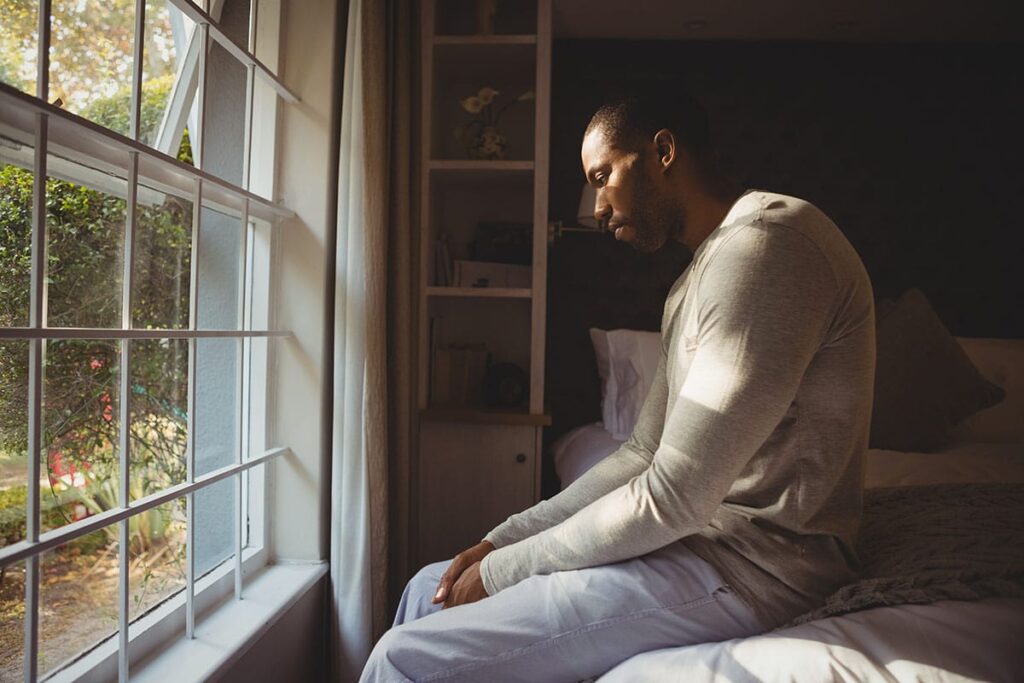When you think of post-traumatic stress disorder (PTSD), your first thought may be of a military veteran who has fought in a war. While PTSD is more common in people who have served their country, the condition is not limited to this group. Anyone can develop post-traumatic stress disorder. PTSD and addiction often occur together, and their symptoms can be similar, leaving many people unaware that they are dealing with a severe mental health condition.
Addiction and co-occurring mental disorders like PTSD require a specialized treatment approach. Promises Brazos Valley offers an evidence-based dual diagnosis treatment program to address the unique needs of people with co-occurring conditions. Contact us through our online form or by calling us at 979.426.0086 to learn more about how we can help you or someone you love get through PTSD and addiction recovery.
What Is PTSD?
Post-traumatic stress disorder is a mental health condition that can develop after exposure to a terrifying event or ordeal. People who have PTSD:
- Relive their trauma through nightmares and flashbacks
- Have difficulty sleeping
- Feel detached from others
- Have intense feelings of anger, guilt, or depression
The condition was initially referred to as shell shock when attributed to the mental health struggles soldiers experienced after returning home from battle. But in 1980, the diagnosis of post-traumatic stress disorder was officially added to the Diagnostic and Statistical Manual of Mental Disorders (DSM). It was also recognized that PTSD could affect people who have experienced any traumatic event rather than being reserved for those involved in military combat.
What Causes Post-Traumatic Stress Disorder?
Post-traumatic stress disorder is instigated by experiencing a traumatic event or witnessing someone else going through a traumatic event. In addition to military combat, some examples of situations that can result in PTSD are:
- Being involved in a car accident
- Being neglected as a child
- Being raped or sexually assaulted
- Being bullied
- Being the victim of physical assault or being threatened with physical violence
- The unexpected death of a loved one
If you experience one of the above situations, that does not mean you will develop PTSD. However, talking to a therapist to process the traumatic event can reduce the severity of your symptoms or decrease the chances that you will experience this condition.
The Link Between PTSD and Addiction
There is a strong connection between post-traumatic stress disorder and addiction. People undergoing treatment for PTSD have a significantly higher chance of being diagnosed with a co-occurring substance use disorder. What makes these two conditions more likely to occur alongside one another?
PTSD Can Lead to Self-Medication
Without proper treatment, the symptoms of post-traumatic stress disorder can become overbearing. You may find that their condition interferes with your day-to-day life. Intense fear or anxiety can make it difficult to function normally, regulate your emotions, go to work or school, and have healthy relationships with others. To cope with this, you may turn to drugs or alcohol to numb your discomfort.
Addiction Can Increase the Risk of Experiencing a Traumatic Event
If you are addicted to drugs or alcohol, you are more likely to engage in risky behaviors that can result in traumatic events. For example, you may operate a vehicle under the influence and be involved in a severe car accident. Or you may overdose or witness someone else have a fatal overdose. Impairment from drugs or alcohol can also make you more vulnerable to physical or sexual assault.
Heal from PTSD and Addiction at Promises Brazos Valley
The link between PTSD and addiction is relatively straightforward, so if you know someone who is a likely candidate for post-traumatic stress disorder, talk to them about getting help. With a quality dual diagnosis treatment program, people with PTSD can overcome chronic feelings of fear and anxiety and heal from the effects of self-medication. To learn more about how we can help you get your life back, contact Promises Brazos Valley today at 979.426.0086.

